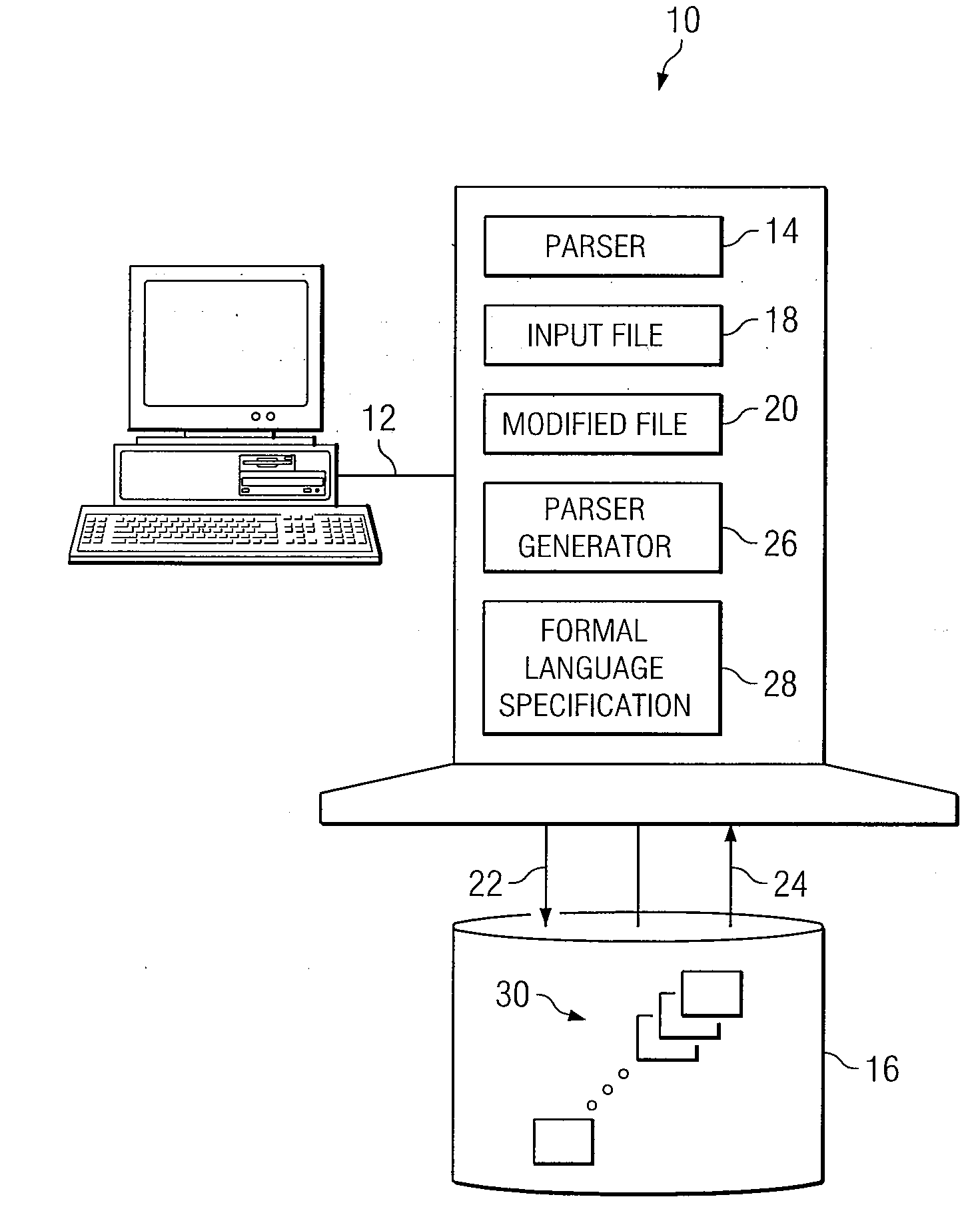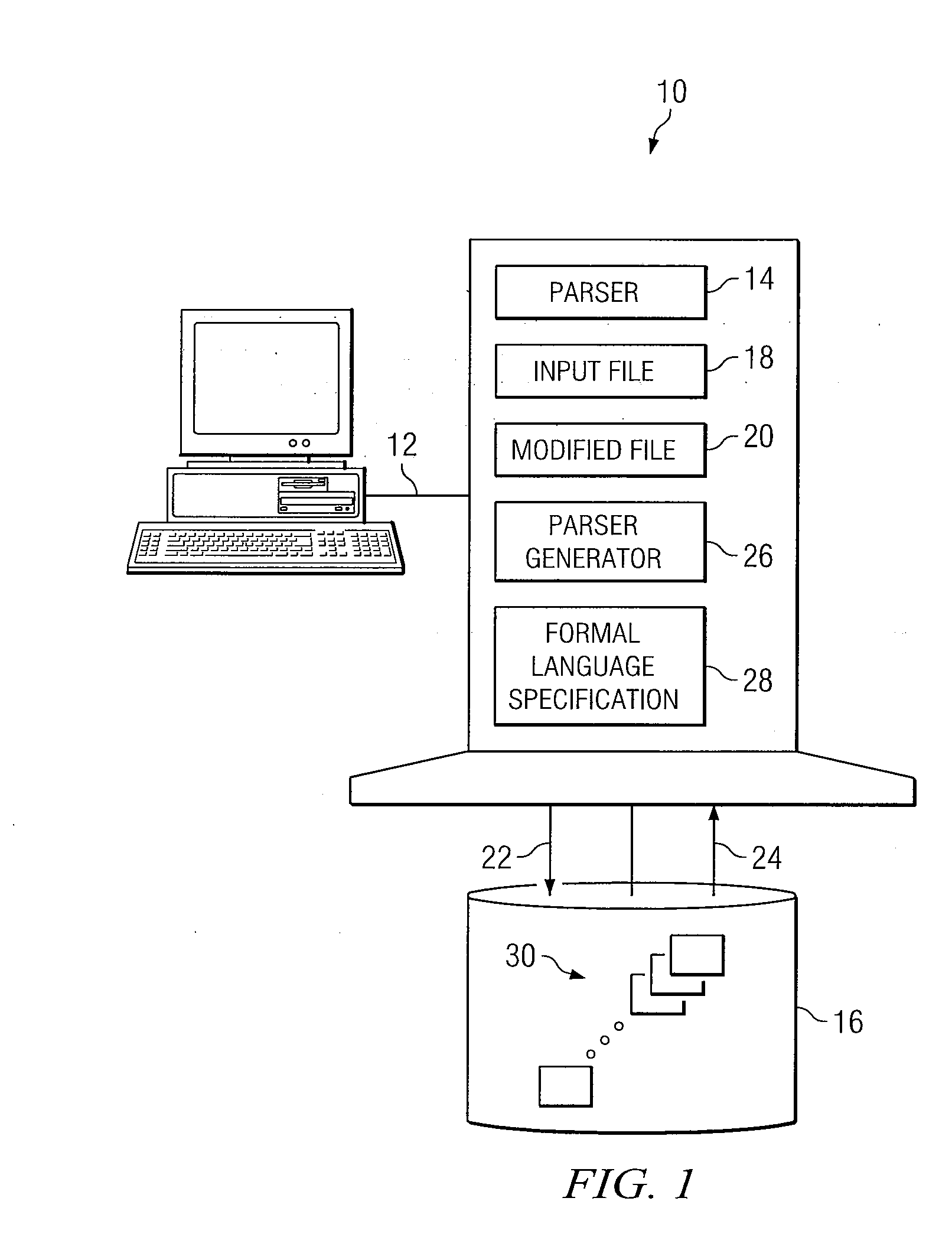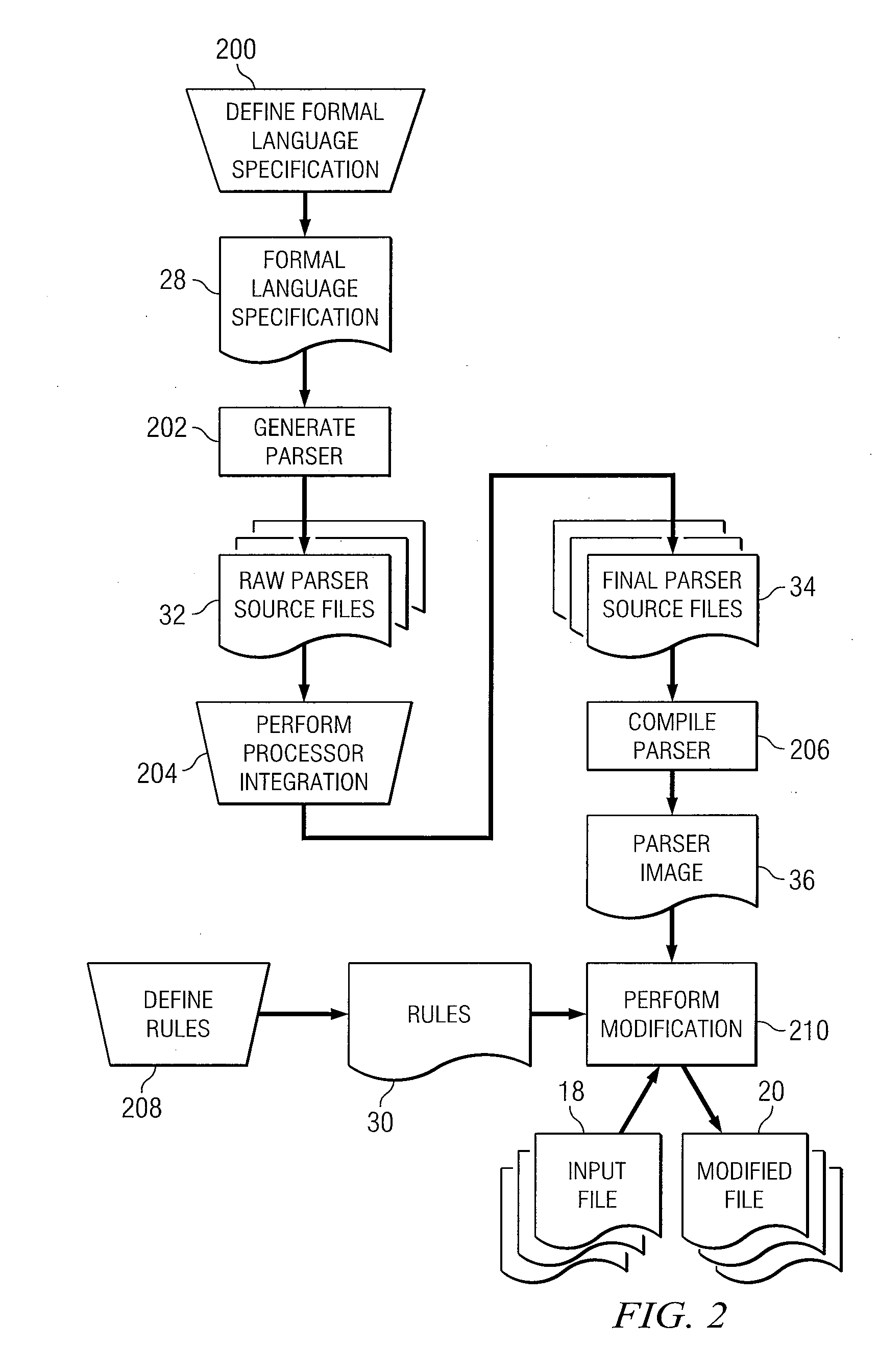Modifying a File Written in a Formal Language
a formal language and file technology, applied in the field of computer programming, can solve problems such as difficult maintenance and reuse, and achieve the effect of reducing the disadvantages and eliminating the problems of previous techniques for modifying files written in formal languages
- Summary
- Abstract
- Description
- Claims
- Application Information
AI Technical Summary
Benefits of technology
Problems solved by technology
Method used
Image
Examples
example
[0074]A particular example of modifying a file 18 written in a formal language according to certain embodiments of the present invention will now be described. It will be understood that this example is provided for illustrative purposes only and should not be used to limit the present invention.
[0075]In this example, input file 18 comprises a JAVA computer program named echo.java, which is a simple computer program that is operable to echo to a computer display the first argument passed to the computer program. The source code of echo.java may include the following:
public class echo { public static void main(String[ ] args) { System.out.println(“args[0]: ” + args[0]); }}
[0076]FIGS. 4A-4C illustrate an example syntax tree of the example echo.java computer program, according to the JAVA grammar.
[0077]A listing of example queries that may be sent by parser 14 to rule engine 16 (in text format) are listed below.
‘ResultType’([‘void’], Action, Text).‘Name’([‘String’], Action, Text).‘Typ...
PUM
 Login to View More
Login to View More Abstract
Description
Claims
Application Information
 Login to View More
Login to View More - R&D
- Intellectual Property
- Life Sciences
- Materials
- Tech Scout
- Unparalleled Data Quality
- Higher Quality Content
- 60% Fewer Hallucinations
Browse by: Latest US Patents, China's latest patents, Technical Efficacy Thesaurus, Application Domain, Technology Topic, Popular Technical Reports.
© 2025 PatSnap. All rights reserved.Legal|Privacy policy|Modern Slavery Act Transparency Statement|Sitemap|About US| Contact US: help@patsnap.com



